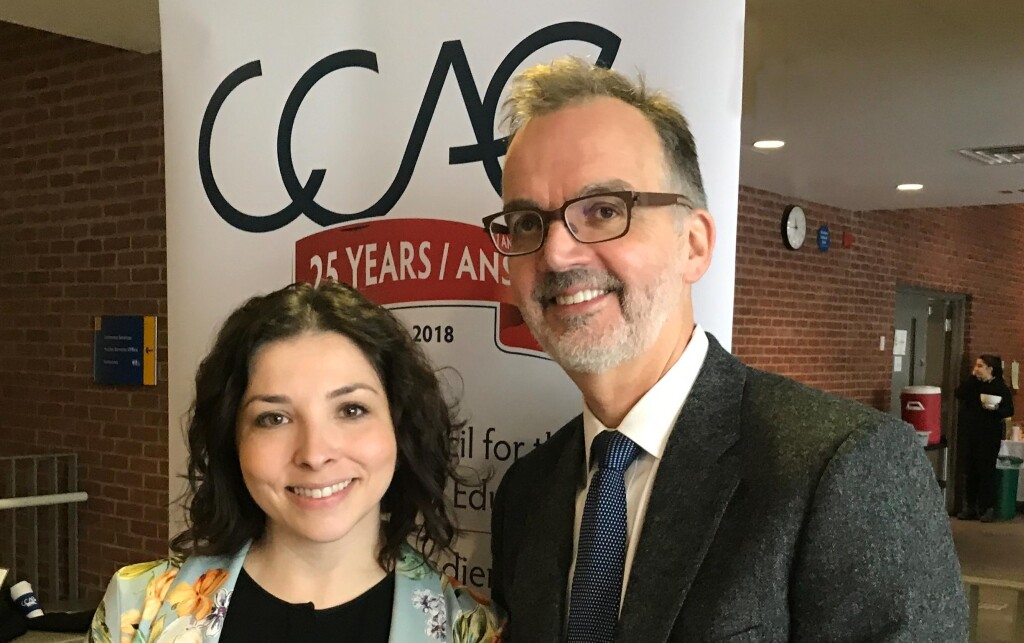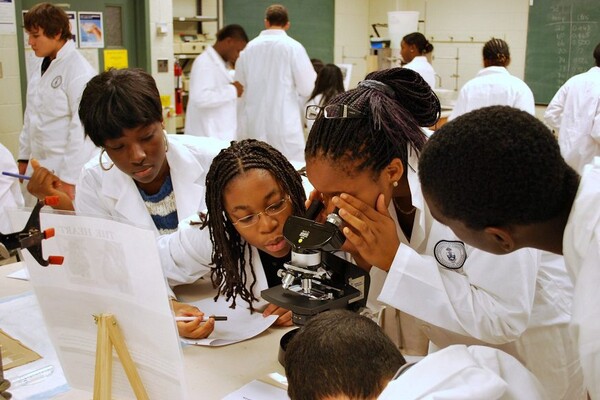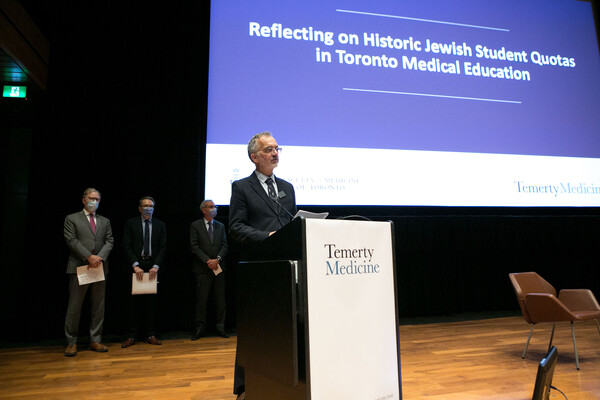Mobile Menu
- Education
- Research
-
Students
- High School Outreach
- Undergraduate & Beyond: Community of Support
- Current Students
- Faculty & Staff
- Alumni
- News & Events
- Giving
- About


In counting down the final moments of 2018, we also marked the end of our Boundless campaign. While we’re still tallying final numbers, I’m thrilled, humbled and thankful to share that the Faculty of Medicine has surpassed our ambitious $600 million goal, raising a total of over $637 million as of December 21st.
Our donors — including many of our faculty, staff and alumni — make a significant impact, supporting major interdisciplinary centres and institutes, research chairs, student awards, catalyst funds and more.
On behalf of the Faculty of Medicine, I am extremely grateful. We will be sharing stories of impact throughout 2019 — adding to the many examples highlighted here.
And on a personal level, I’ve come to realize during my first term as dean that advancement is quite different from what I had previously assumed.
For instance, when I started this role back in 2015, people would ask how much time I dedicated to advancement. I would give an estimate of the few hours each month spent in meetings with donors, alumni or with advancement colleagues.
I soon realized that advancement wasn’t all about fundraising or cocktail receptions, but about actually advancing the mission of the Faculty of Medicine — and this is precisely my role as dean.
Now, my answer to the time question is different: an advancement ethos is now embedded into everything I do. I dedicate 100 per cent of my time to advancement: I’m focused on moving our strategic priorities forward, supporting the Faculty’s core work and ultimately enhancing our impact.
In working with our exceptional Executive Director of Advancement, Darina Landa, and many of our visionary donors, here are four key things I’ve learned about advancement:
#1: It’s much more about asking questions — and listening — than about asking for money
I’m sure I’m not the only one who assumed that advancement was all about asking for money. And that may indeed be part of it, but a very small part, it turns out.
Much more time and focus is spent listening and asking about what’s important to our supporters and potential partners. Both as a doctor and as dean, I’ve learned a lot by taking the time to listen.
Some donors are motivated because of a strong connection to our institution — to the Faculty, or a specific department, division, program or area of research. Others want to invest in a specific cause and help improve outcomes for patients and families. Others yet want to honour a family member, a friend or a mentor with a lasting legacy.
Only once we understand these motivations can we find alignment with our priorities and areas of expertise. Without listening, you can miss big opportunities for shared purpose and collective impact.
#2: It’s about building and strengthening community
Advancement is about community building. It’s engaging our diverse network of leading clinicians, researchers, educators, learners, alumni, donors and staff in our shared vision for advancing new knowledge, better health and equity.
It’s about staying connected with our strong network of over 58,000 alumni, including our life sciences, rehabilitation sciences, MD and MD/PhD program graduates, as well as former residents and fellows — who strengthen our community by serving as volunteers, mentors and often donors.
It’s ensuring our outstanding UofTMed magazine is focused on real challenges in health and medicine, not filled with recycled web stories or institutional self-promotion.
It’s about investing in our ecosystem of collaboration, our groundbreaking imagination and in achieving excellence through equity — while supporting health and wellbeing at all times, and building the infrastructure, policies and technology to sustain our impact. (I hope this sounds familiar: it’s from our new Academic Strategic Plan for 2018-2023.)
Ultimately, advancement is about moving forward — literally, “advancing” — as a community. It’s not a separate priority in and of itself, but a collaborative approach that brings us together to help strengthen and catalyze our potential.
#3: It’s focused on potential, not confined by limitations
I used to believe that donor impact happened after financial investment was made. But I’ve come to realize that the impact of philanthropy begins at a much earlier stage.
To even consider developing a donor proposal, we must examine — if we haven’t done so already — the true value and potential of our work. We must consider the ways we can make a real difference to people and to our communities. We need to ask: What is our competitive advantage? Why us? Why now? What would make us better?
And yet, as academics, researchers and administrators, we can get wrapped up in details, or in worries about covering our costs, that we risk losing sight of the bigger picture.
An advancement-centered framework can make a huge difference to the way we understand and position our work. It’s an approach that’s focused on potential, instead of confined by limitations; inspired by possibilities, not defeated by obstacles.
By taking a step back to reflect, and to analyze how our work fits in, we realize just how profound our impact can be and start connecting with this big-picture purpose — long before any philanthropic donation is made.
#4: It’s about being thankful
It’s difficult not to be thankful when you’re surrounded by so many passionate people, who are committed to this Faculty. I want to thank all our valued donors for partnering with us. And to Darina, our dedicated team in the Office of Advancement, thank you for helping me see what advancement really is.
Our work is not over, of course. While Boundless the campaign has officially come to a close — we will continue to advance and remain boundless in our potential.
Trevor Young
Dean, Faculty of Medicine
Vice Provost, Relations with Health Care Institutions
University of Toronto


